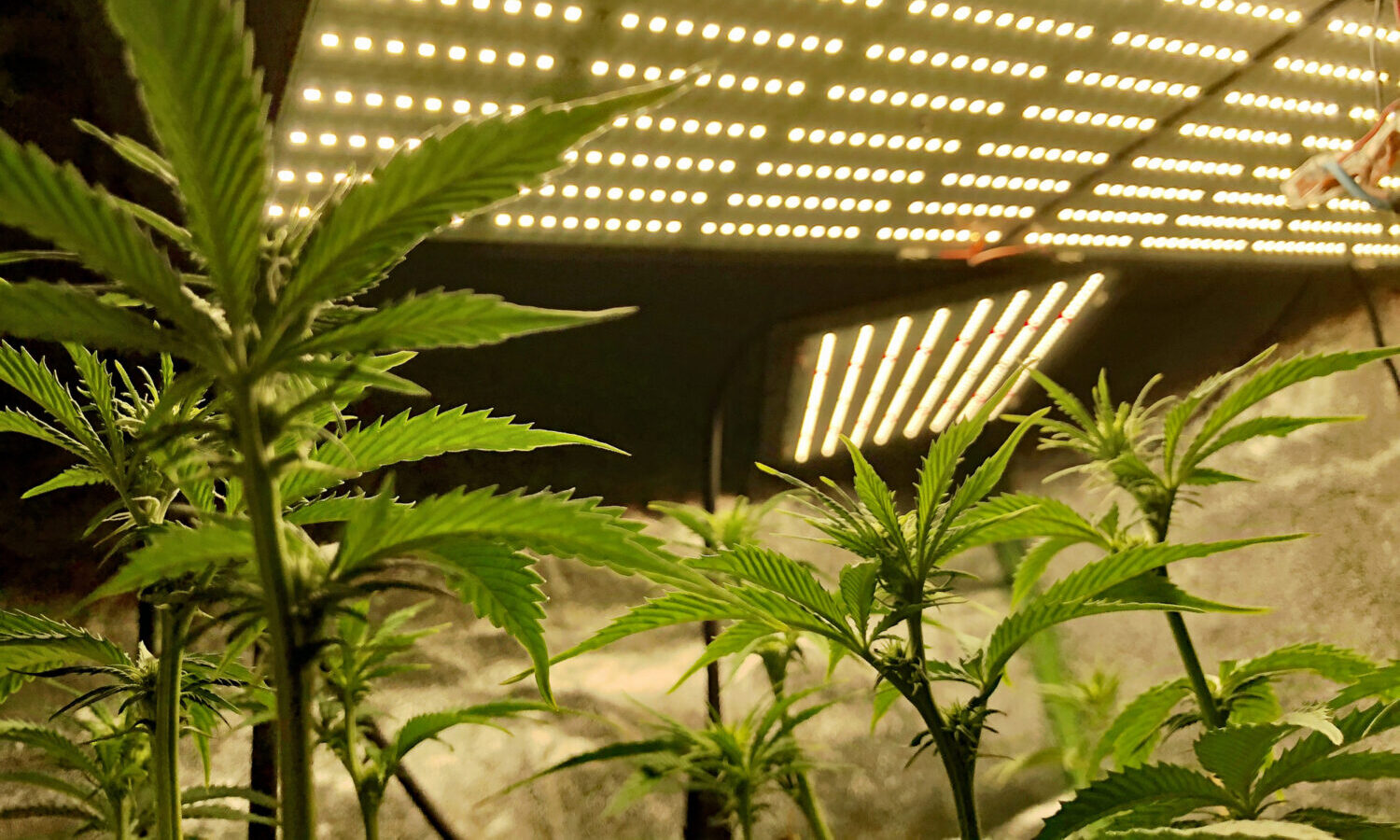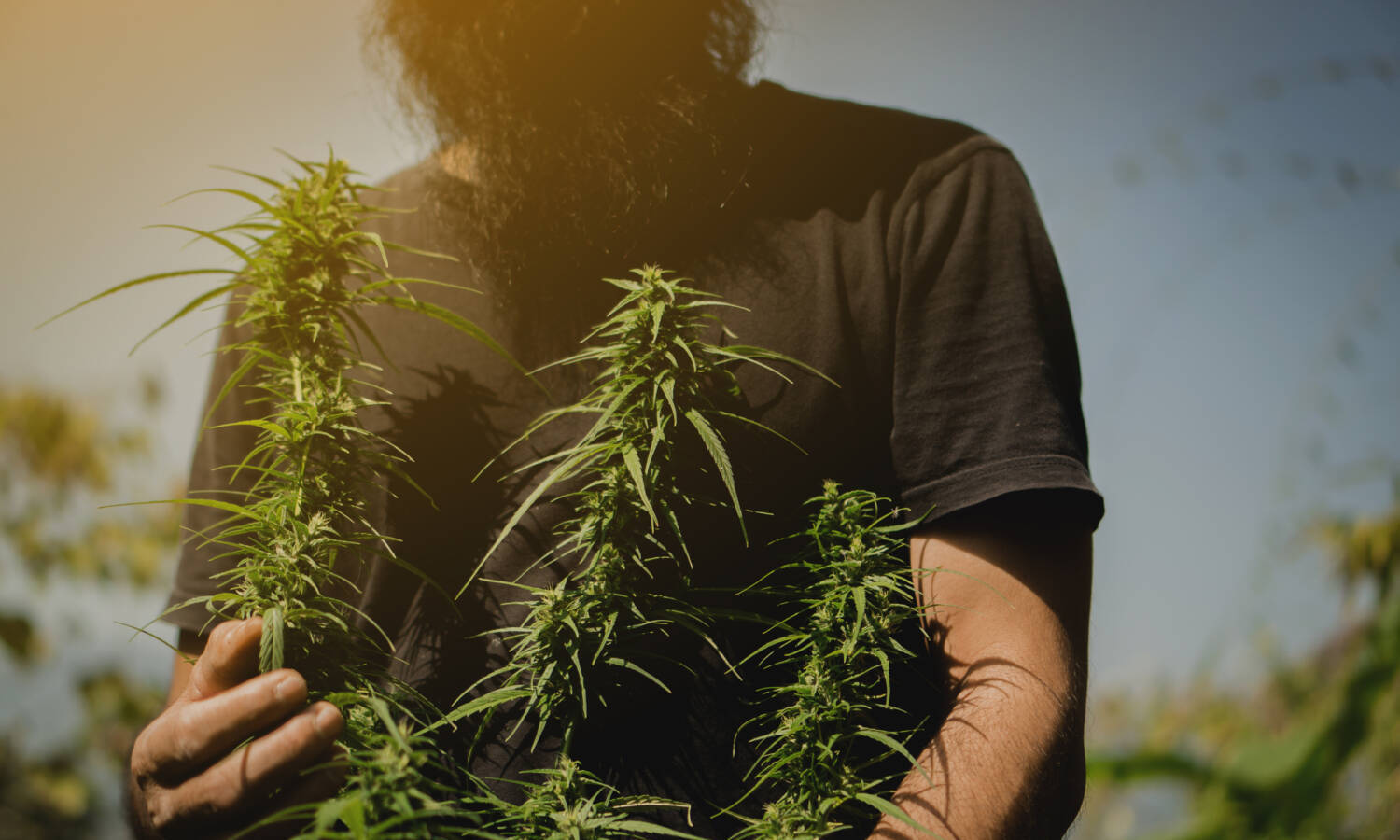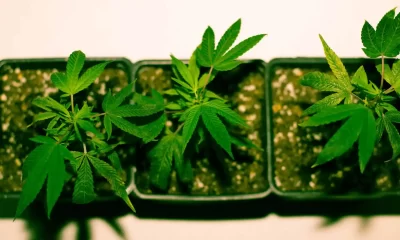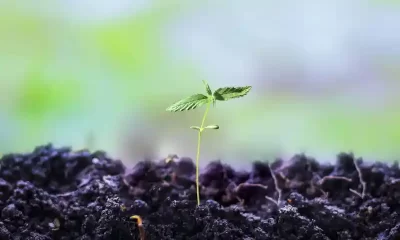Business
Indoor Vs. Outdoor: Which Type Of Weed Gives You A Better High?

Both outdoor and indoor marijuana are capable of producing the best weed in the land. But which gives you the best high?
Cannabis options these days are more bountiful than ever before. It seems there is a new way to consume marijuana every season and always a new strain to try out. When it comes to selecting a marijuana product, the process, while exciting, can be altogether daunting. It’s helpful to find ways of narrowing the list of choices in front of you.
If you prefer indica to sativa, for example, you can cut your list in half. This can make your selection a bit less overwhelming. Then there is the growing method to consider.
You may have heard there are some differences between indoor and outdoor marijuana. You might even notice that the buds you purchase even look a bit different depending on whether they were grown inside or in natural sunlight. This might have you wondering if these visual differences between indoor grown and outdoor grown marijuana can also affect the quality of the product. If so, when it comes to indoor versus outdoor cannabis, which type is better to buy?
Reasons to Buy (and Avoid) Indoor Grown Marijuana
Indoor cannabis is sometimes compared to growing marijuana in a laboratory, and this comparison is by no means baseless. Indoor marijuana is grown in very controlled, laboratory-like conditions. This control allows growers to extract the exact attributes they are looking for in any given strain.
This controlled and hands-on approach can lead to potent products, with several indoor varieties having higher THC content than their outdoor counterparts of the same strain. According to the cannabis technology and marketing company Leafbuyer, “In an enclosed space, you can control the amount (and type) of light your plant gets, the humidity of your growing room, and just about every other factor that goes into growing cannabis.”
When you purchase indoor cannabis, you are likely to get a controlled product, with little variation. In other words, if you are less likely to be “surprised” with indoor cannabis, as part of the goal is to remove that nuance that exists in outdoor farming.
While indoor cannabis is quality controlled and closely monitored, there are some reasons that might steer you away from cannabis grown indoors. One of these reasons is noticeable right off the bat — the price. Because indoor cannabis is grown inside a facility, there are more overhead costs. It often takes more manpower per plant to grow as well, raising the price even more. And while each plant could potentially contain more THC than outdoor plants, the yields are often much smaller.

The other reason you might want to reconsider purchasing indoor weed has less to do with how the high feels, but rather how low the purchase might make you feel on a moral level. That is because indoor cannabis has a mammoth carbon footprint. According to New Frontier data, “Indoor cultivators use 18 times more energy to produce one gram of cannabis than outdoor cultivators use (kWh/gram).”
The study goes so far as to say that indoor marijuana cultivation produces almost 25 times more carbon than outdoor growing methods. If you, like many, are sensitive to your carbon footprint in this era of climate change, then purchasing some indoor cannabis might make you feel a bit environmentally irresponsible.
Outdoor Cannabis and Why You Should Choose It
When it comes to outdoor cultivation, it is easy to compare it to indoor growing and see a major potential downside, and that’s a lack of consistency. Just like with wine and other complex horticulture products, outdoor cannabis can vary greatly from one growing season to another. With ever-mounting wildfires, droughts, hurricanes and other intense unpredictable weather events, it is easy to see why there can be good years and catastrophic years for outdoor cannabis. This, more than anything, makes outdoor cannabis unpredictable, especially compared to cannabis grown indoors.
There is also the climate to consider. Growing cannabis outdoors in tropical Hawaii is simply not going to be the same process or product as the same strain grown in Maine. The growing seasons can be short or long, just as the days and sunlight can vary significantly.
Still, some argue that this individual relationship outdoor plants have with the Earth and the sun is what makes it special, and possibly superior. “By letting the plants do their thing and just making sure they have enough food and water to thrive, you can end up with an incredible crop,” according to cannabis nutrient supply company Geoflora Nutrients. “Many growers even consider outdoor-grown bud to taste better because it was grown with sunlight.”

In fact, while the idea that indoor weed is more precisely grown and is therefore superior is one theory, others see great value in using the natural elements. “Outdoor has a bad rep for being weak or not as juicy in flavor as indoor,” Merry Jane editor Mary Carreon told Forbes. “But I’d argue that outdoor can be just as good, sometimes better, than indoor,” she continued.
After all, potency is not necessarily what makes marijuana “the best.” Some people look for taste and aroma. Just like with fine wine, much of that nuanced flavor can come from the soil and surroundings, which might be muted or altogether absent when marijuana is grown indoors with carefully manipulated soil.
Both outdoor and indoor marijuana are capable of producing the best weed in the land. Indoor cannabis is king when it comes to consistency, since it strips the environment of nearly all outside variables. It also unloads a giant carbon footprint. Outdoor cannabis, while married and unique to the climate where it is purchased, can offer a more eco-friendly and tasty experience, even if it might be a bit of a surprise.
Source: https://thefreshtoast.com/cannabis/indoor-vs-outdoor-which-type-of-weed-gives-you-a-better-high/
Business
New Mexico cannabis operator fined, loses license for alleged BioTrack fraud

New Mexico regulators fined a cannabis operator nearly $300,000 and revoked its license after the company allegedly created fake reports in the state’s traceability software.
The New Mexico Cannabis Control Division (CCD) accused marijuana manufacturer and retailer Golden Roots of 11 violations, according to Albuquerque Business First.
Golden Roots operates the The Cannabis Revolution Dispensary.
The majority of the violations are related to the Albuquerque company’s improper use of BioTrack, which has been New Mexico’s track-and-trace vendor since 2015.
The CCD alleges Golden Roots reported marijuana production only two months after it had received its vertically integrated license, according to Albuquerque Business First.
Because cannabis takes longer than two months to be cultivated, the CCD was suspicious of the report.
After inspecting the company’s premises, the CCD alleged Golden Roots reported cultivation, transportation and sales in BioTrack but wasn’t able to provide officers who inspected the site evidence that the operator was cultivating cannabis.
In April, the CCD revoked Golden Roots’ license and issued a $10,000 fine, according to the news outlet.
The company requested a hearing, which the regulator scheduled for Sept. 1.
At the hearing, the CCD testified that the company’s dried-cannabis weights in BioTrack were suspicious because they didn’t seem to accurately reflect how much weight marijuana loses as it dries.
Company employees also poorly accounted for why they were making adjustments in the system of up to 24 pounds of cannabis, making comments such as “bad” or “mistake” in the software, Albuquerque Business First reported.
Golden Roots was fined $298,972.05 – the amount regulators allege the company made selling products that weren’t properly accounted for in BioTrack.
The CCD has been cracking down on cannabis operators accused of selling products procured from out-of-state or not grown legally:
- Regulators alleged in August that Albuquerque dispensary Sawmill Sweet Leaf sold out-of-state products and didn’t have a license for extraction.
- Paradise Exotics Distro lost its license in July after regulators alleged the company sold products made in California.
Golden Roots was the first alleged rulebreaker in New Mexico to be asked to pay a large fine.
Source: https://mjbizdaily.com/new-mexico-cannabis-operator-fined-loses-license-for-alleged-biotrack-fraud/
Business
Marijuana companies suing US attorney general in federal prohibition challenge

Four marijuana companies, including a multistate operator, have filed a lawsuit against U.S. Attorney General Merrick Garland in which they allege the federal MJ prohibition under the Controlled Substances Act is no longer constitutional.
According to the complaint, filed Thursday in U.S. District Court in Massachusetts, retailer Canna Provisions, Treevit delivery service CEO Gyasi Sellers, cultivator Wiseacre Farm and MSO Verano Holdings Corp. are all harmed by “the federal government’s unconstitutional ban on cultivating, manufacturing, distributing, or possessing intrastate marijuana.”
Verano is headquartered in Chicago but has operations in Massachusetts; the other three operators are based in Massachusetts.
The lawsuit seeks a ruling that the “Controlled Substances Act is unconstitutional as applied to the intrastate cultivation, manufacture, possession, and distribution of marijuana pursuant to state law.”
The companies want the case to go before the U.S. Supreme Court.
They hired prominent law firm Boies Schiller Flexner to represent them.
The New York-based firm’s principal is David Boies, whose former clients include Microsoft, former presidential candidate Al Gore and Elizabeth Holmes’ disgraced startup Theranos.
Similar challenges to the federal Controlled Substances Act (CSA) have failed.
One such challenge led to a landmark Supreme Court decision in 2005.
In Gonzalez vs. Raich, the highest court in the United States ruled in a 6-3 decision that the commerce clause of the U.S. Constitution gave Congress the power to outlaw marijuana federally, even though state laws allow the cultivation and sale of cannabis.
In the 18 years since that ruling, 23 states and the District of Columbia have legalized adult-use marijuana and the federal government has allowed a multibillion-dollar cannabis industry to thrive.
Since both Congress and the U.S. Department of Justice, currently headed by Garland, have declined to intervene in state-licensed marijuana markets, the key facts that led to the Supreme Court’s 2005 ruling “no longer apply,” Boies said in a statement Thursday.
“The Supreme Court has since made clear that the federal government lacks the authority to regulate purely intrastate commerce,” Boies said.
“Moreover, the facts on which those precedents are based are no longer true.”
Verano President Darren Weiss said in a statement the company is “prepared to bring this case all the way to the Supreme Court in order to align federal law with how Congress has acted for years.”
While the Biden administration’s push to reschedule marijuana would help solve marijuana operators’ federal tax woes, neither rescheduling nor modest Congressional reforms such as the SAFER Banking Act “solve the fundamental issue,” Weiss added.
“The application of the CSA to lawful state-run cannabis business is an unconstitutional overreach on state sovereignty that has led to decades of harm, failed businesses, lost jobs, and unsafe working conditions.”
Business
Alabama to make another attempt Dec. 1 to award medical cannabis licenses

Alabama regulators are targeting Dec. 1 to award the first batch of medical cannabis business licenses after the agency’s first two attempts were scrapped because of scoring errors and litigation.
The first licenses will be awarded to individual cultivators, delivery providers, processors, dispensaries and state testing labs, according to the Alabama Medical Cannabis Commission (AMCC).
Then, on Dec. 12, the AMCC will award licenses for vertically integrated operations, a designation set primarily for multistate operators.
Licenses are expected to be handed out 28 days after they have been awarded, so MMJ production could begin in early January, according to the Alabama Daily News.
That means MMJ products could be available for patients around early March, an AMCC spokesperson told the media outlet.
Regulators initially awarded 21 business licenses in June, only to void them after applicants alleged inconsistencies with how the applications were scored.
Then, in August, the state awarded 24 different licenses – 19 went to June recipients – only to reverse themselves again and scratch those licenses after spurned applicants filed lawsuits.
A state judge dismissed a lawsuit filed by Chicago-based MSO Verano Holdings Corp., but another lawsuit is pending.
Source: https://mjbizdaily.com/alabama-plans-to-award-medical-cannabis-licenses-dec-1/
-

 Business2 years ago
Business2 years agoPot Odor Does Not Justify Probable Cause for Vehicle Searches, Minnesota Court Affirms
-

 Business2 years ago
Business2 years agoNew Mexico cannabis operator fined, loses license for alleged BioTrack fraud
-

 Business2 years ago
Business2 years agoAlabama to make another attempt Dec. 1 to award medical cannabis licenses
-

 Business2 years ago
Business2 years agoWashington State Pays Out $9.4 Million in Refunds Relating to Drug Convictions
-

 Business2 years ago
Business2 years agoMarijuana companies suing US attorney general in federal prohibition challenge
-

 Business2 years ago
Business2 years agoLegal Marijuana Handed A Nothing Burger From NY State
-

 Business2 years ago
Business2 years agoCan Cannabis Help Seasonal Depression
-

 Blogs2 years ago
Blogs2 years agoCannabis Art Is Flourishing On Etsy













